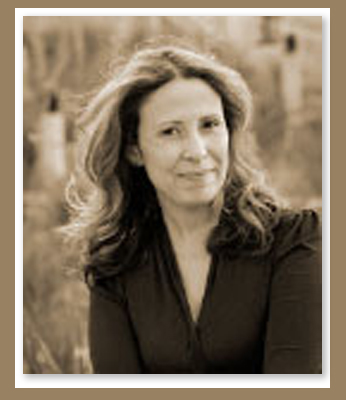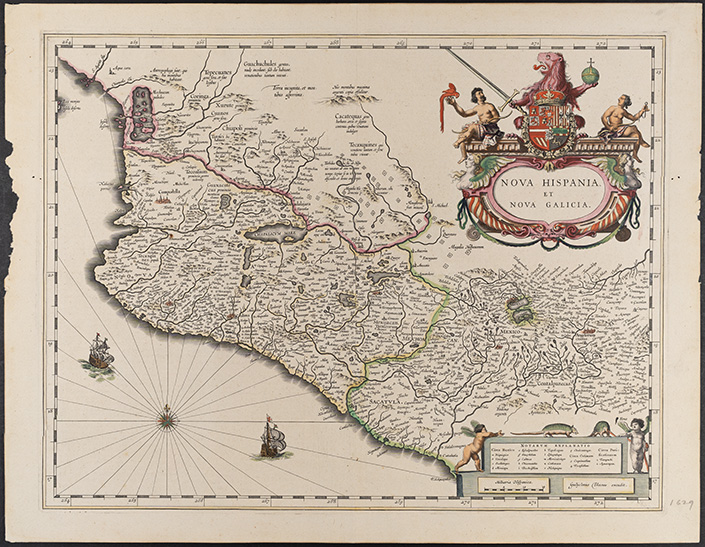NEH Grant Propels Quest to Uncover the Lost Histories of the Chichimeca
Professor of History Dana Velasco Murillo awarded $60K to continue recovering the story of Indigenous people of northern Mexico
Story by:
Published Date
Story by:
Topics covered:
Share This:
Article Content
They were labeled as barbarians, unfit for the history books. To reclaim the lost story of the Chichimeca peoples of northern Mexico, UC San Diego Professor of History Dana Velasco Murillo is scouring primary sources across the globe to find traces of the neglected voices of these nomadic peoples. The six-year research project is nearing completion, thanks to a recent $60,000 grant received from the National Endowment for the Humanities (NEH).
The project, first conceived when Velasco Murillo was in graduate school, chronicles the bloody conflict spurred when Spanish colonizers attempted to convert and enslave the semi-sedentary and non-sedentary Indigenous peoples of northern Mexico, collectively known as the Chichimecas—who were seen as an obstacle in their ultimate desire to mine as much silver as possible and continue expanding northward.

What was once a thriving community of hundreds of thousands of Chichimecas in the 16th century became a highly dispersed group of peoples whose lives were stolen, and stories forgotten. In writing the work, “The Chichimeca Arc: War, Peace, and Resettlement in America’s First Borderlands, 1546–1616,” Velasco Murillo intends to center and celebrate Indigenous and Afro-Latinx (especially women and children) narratives as an important part of Mexican history.
“The Chichimeca are mentioned as asides, dehumanized; yet they were the demographic majority at the time,” explained Velasco Murillo, who is a social and ethnohistorian of early modern Latin America. “The NEH grant is important to me because it offers an opportunity to travel to find missing information and to finish the book,” activities which researchers can find challenging to accomplish while fulfilling regular teaching, mentoring and service responsibilities.
After the awards were announced, Velasco Murillo received an unexpected congratulatory phone call from Congressman Scott Peters. “I was really grateful and honored that he called me,” she said. “This award is an affirmation of the work we do as historians. We tell stories that we hope will illuminate the past for people, but also give them perspectives that will help them to understand the complexities of the present.”
Searching for clues
Velasco Murillo regularly teaches an introductory class on Spanish California, and she is pleasantly surprised when students approach her with gratitude for the opportunity to learn about their own Mexican, Central American and Latinx identity. “They tell me, I never knew this about my heritage.”

Why do some cultures end up buried in time while others rise to the top of humanity’s records? Velasco Murillo explains that one reason is a preference towards sedentary populations, ones that build monuments, use alphabetic writing and leave behind other forms of “civilization” that make it more accessible to learn their history. However, non-elite groups that did not practice agriculture like the Chichimecas were treated as inferiors by contemporaries and remain difficult to track because they left little traces of their communities in written records.
In her new book, Velasco Murillo argues for an unknown Chichimeca diaspora. Though Indigenous enslavement was illegal at the time, in northern Mexico, Spanish colonizers raided Chichimeca settlements, captured Indigenous people, sold them into personal service and relocated them throughout the colony. Some Indigenous leaders who resisted or chose not to convert to Christianity were killed.
“Children would be taken from their families and marched to Mexico City, put in a prison, and redistributed to Spanish families—in Mexico City or cities such as Puebla, or sometimes traveling all the way to Spain—to become ‘civilized,’” said Velasco Murillo. “But we know that in the end they became laborers, enslaved for life.”

Thus far, the majority of primary sources that Velasco Murillo utilizes were created by the colonizers. For example, she can document which Chichimeca people were sold through the meticulous records of Spanish administrators who tracked these transactions to ensure taxes were collected for each sale. Only on rare occasions has she found Chichimeca voices (mediated by an interpreter) when petitioning for a cause or when they appeared in a trial.
“The challenge of this project is finding the information, and then analyzing it in a way that centers the Indigenous perspective,” said Velasco Murillo. “I want to create an arc for the Chichimeca people that puts them into Mexican history and positions northern Mexico as a really important place.”
Though she is studying events that happened nearly five hundred years ago, Velasco Murillo still finds parallels in our world today—such as the thousands of families who were separated and held in detention facilities at the U.S.-Mexico border. “It’s a story that tells you about the legacies of state terror and family separation; I can’t believe this is still happening now,” said Velasco Murillo.
The Chichimecas lived a different—but no less valid—kind of life as non-sedentary people. They contributed greatly to the heritage and history of Mexico. And their stories deserve to be told. “I want the Chichimeca population to be known and understood. I am committed to continuing to tell their stories, and grateful I have the opportunity to focus on finishing the project with support from the NEH.”
You May Also Like
Stay in the Know
Keep up with all the latest from UC San Diego. Subscribe to the newsletter today.




